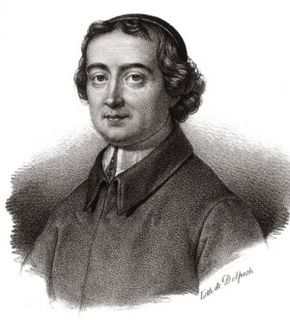A Quote by Jean Baptiste Massillon
Nothing is more detestable than a professed declaimer who retails his discourses as a quack does his medicines.
Related Quotes
You ought to have seen Frédéric with his monocle, his greying whiskers, his calm demeanour, carving his plump quack-quack, trussed and already flamed, throwing it into the pan, preparing the sauce, salting and peppering like Claude Monet's paintings, with the seriousness of a judge and the precision of a mathematician, and opening up, with a sure hand, in advance, every perspective of taste.
In nothing does man, with his grand notions of heaven and charity, show forth his innate, low-bred, wild animalism more clearly than in his treatment of his brother beasts. From the shepherd with his lambs to the red-handed hunter, it is the same; no recognition of rights - only murder in one form or another.
In His discourses, His miracles, His parables, His sufferings, His resurrection, He gradually raises the pedestal of His humanity before the world, but under a cover, until the shaft reaches from the grave to the heavens, whenHe lifts the curtain, and displays the figure of a man on a throne, for the worship of the universe; and clothing His church with His own power, He authorizes it to baptize and to preach remission of sins in His own name.
The wise man does nothing but what can be done openly and without falseness, nor does he do anything whereby he may involve himself in any wrong-doing, even where he may escape notice. For he is guilty in his own eyes before being so in the eyes of others; and the publicity of his crime does not bring him more shame than his own consciousness of it.
His face set in grim determination, Richard slogged ahead, his fingers reaching up to touch the tooth under his shirt. Loneliness, deeper than he had never known, sagged his shoulders. All his friends were lost to him. He knew now that his life was not his own. It belonged to his duty, to his task. He was the Seeker. Nothing more. Nothing less. Not his own man, but a pawn to be used by others. A tool, same as his sword, to help others, that they might have the life he had only glimpsed for a twinkling. He was no different from the dark things in the boundary. A bringer of death.
Everlastingly chained to a single little fragment of the Whole, man himself develops into nothing but a fragment; everlastingly in his ear the monotonous sound of the wheel that he turns, he never develops the harmony of his being, and instead of putting the stamp of humanity upon his own nature, he becomes nothing more than the imprint of his occupation or of his specialized knowledge.
A wise man once told me- he’s a muslim by the way- that he has more in common with a jew than he does a fanatic of his own religion. He has more in common with a rational, reasonable-minded Christian or a Buddhist or Hindu than he does with a fanatic of his own religion. In fact, he has more in common with a ration, reasonable-minded atheist than he does with a fanatic of his own religion
So near are the boundaries of panegyric and invective, that a worn-out sinner is sometimes found to make the best declaimer against sin. The same high-seasoned descriptions which in his unregenerate state served to inflame his appetites, in his new province of a moralist will serve him (a little turned) to expose the enormity of those appetites in other men.
The dissident does not operate in the realm of genuine power at all. He is not seeking power. He has no desire for office and does not gather votes. He does not attempt to charm the public, he offers nothing and promises nothing. He can offer, if anything, only his own skin - and he offers it solely because he has no other way of affirming the truth he stands for. His actions simply articulate his dignity as a citizen, regardless of the cost.






























